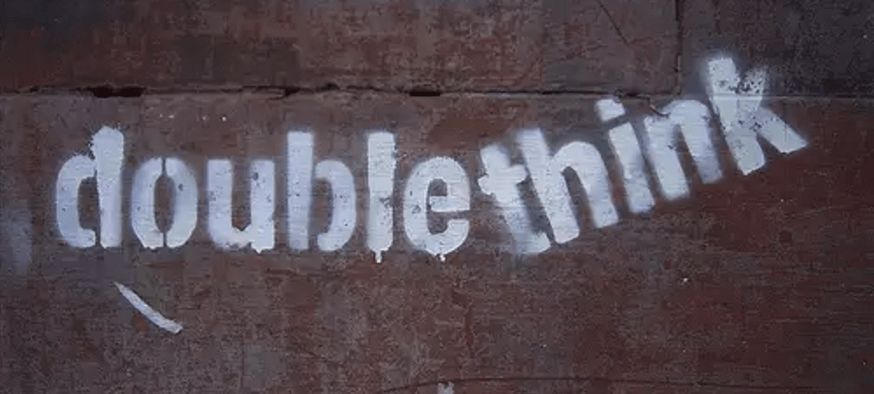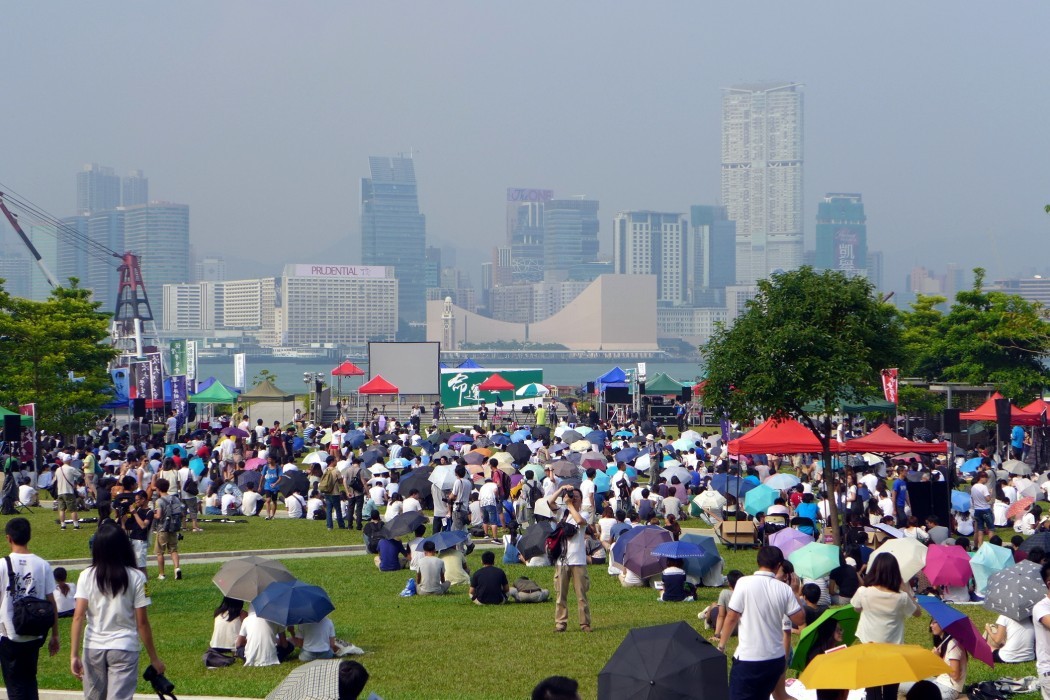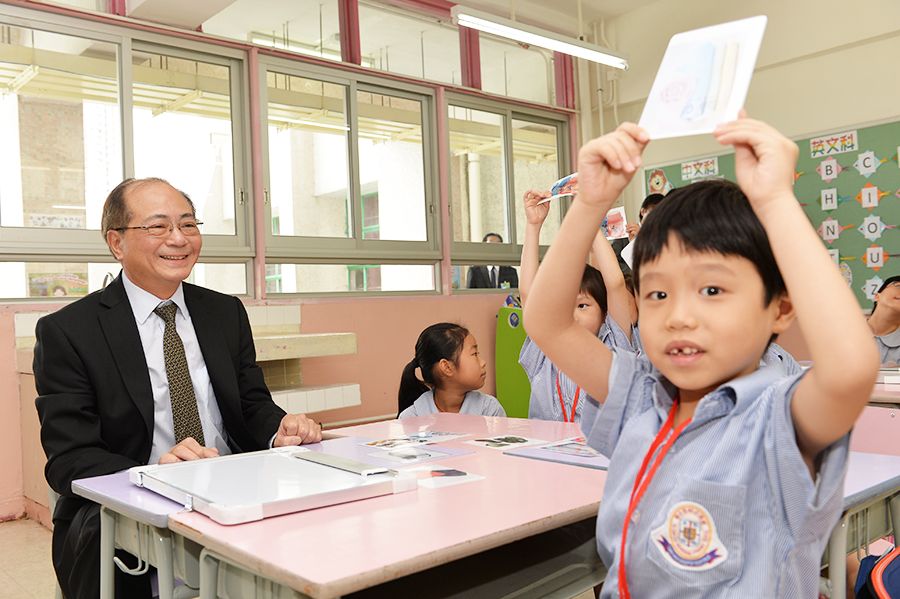Much has been written about the comments, guidance, and threats from official (and unofficial) government leaders about how teachers and schools should deal with the ‘threat’ of independence activism in schools and campuses across the city. The Secretary of Education, for instance, has threatened to revoke the professional qualifications of teachers should they fall on the wrong side of this issue, followed by confusion about what he meant and how this might be defined. He has now ‘suggested’ multiple times that schools and universities call the police to deal with pro-independence activism. Schools have also been asked to shut down pro-independence student groups. Depending on this is defined, this would include nearly all of the university student unions in the city.
Having experienced first-hand how police handle protesters in Hong Kong, we should all be worried about escalation tactics that all but ensure violent clashes on campus. However, here I would like to focus on what this might mean for teachers. Many of my classes at the Education University of Hong Kong intersect with the issues at hand. Several of my courses cover local politics and current events, and one surveys of the concepts and realities of teacher professionalism in Hong Kong.

I can say with high confidence that Hong Kong classrooms are not being used by teachers to ‘radicalize’ students. In my course on teacher professionalism, my students – all future teachers – often disagree with my arguments that ‘fairness’ and ‘respect’ are better goals when covering divisive issues than elusive quests for ‘objectivity’ and ‘neutrality.’ Their disagreement is practical, arising from fears that student or parent complaints could threaten their jobs. We all agree that using classrooms for soapbox lectures is unprofessional and that we must be mindful of how impressionable and sensitive students can be. There is every reason to believe that teachers already in the workforce are even more cautious than my students.
By way of example, I changed the tone of classroom discussions about the Umbrella Movement after learning that one of my students was the child of a police officer. Because support for the protests was very high with this demographic, especially in the first week or two, it was easy to overlook how intimated the small minority of contrarians felt. I impart this lesson to my students. Though I made it a point never to encourage students to strike or join the protest, I never hid my support. My role in that most contentious of moments was to help students stay informed, understood the historic nature of what was happening, and to encourage a healthy debate about the issues at hand.
Because the number of possible ‘rogue’ teachers is so small, the threats and hyperbole are clearly scaring tactics aimed at those who teach classes where current events and politics make regular appearances. Being one such teacher, I hear two things amidst the cacophony. The first is that we should expect our classrooms to be monitored for subversive speech and thought. I am in equal measure alarmed and sceptical about the prospects of developing a network of informants to make these threats credible and applicable to all schools and campuses.
Second, I sense the introduction of ‘Mass Line’ politics into Hong Kong classrooms. An ageing book in my office, Edward Hunter’s Brainwashing in Red China (1951), one of the first to explore the junction of Mass Line politics and ‘political education.’ The book begins with interviews at Hong Kong’s Foreign Correspondents Club with a defected PLA soldier. Recalling that the PLA serves the Chinese Communist Party (CCP), not the state, the soldier’s political commissar led political discussion groups sessions several times a week.
Mistaking this ‘political education’ as a forum for critical inquiry, the soldier told the discussion group that the continued Russian presence at Port Arthur (Dalian) bothered him. In fact, it contradicted official propaganda, the Mass Line, which claimed that the ‘Century of Humiliation’ at foreign hands had ended with the CCP’s victory. His point was valid; Mao was at the same time wrangling with Stalin over this very issue. Raising valid points was not the purpose of ‘political education,’ indoctrination and entrapment were.

George Orwell called this “blackwhite” in 1984, meaning to “impudently claiming that black is white, in contradiction of the plain facts” or “a loyal willingness to say that black is white when Party discipline demands.” Repeatedly highlighting the discrepancy between the Mass Line and reality led to the unfortunate soldier’s journey through re-education camps and endless ‘struggle sessions.’ The soldier eventually ‘admitted’ his mistake, proclaiming that black was indeed white, and promptly fled to Hong Kong at the first opportunity.
To see it from this angle, the issue at hand is not about independence advocacy per se. The Mass Line is a set of instructions on how to interact with an entire set of ‘correct’ claims and ‘incorrect’ counter-claims. With the topic at hand, it is not sufficient to find the idea of Hong Kong independence improbable. It must be impossible (for X, Y, and Z reasons), seditious, illegal, immoral, and part of a centuries-long conspiracy against the Chinese people. To follow the Mass Line is to translate ‘political truths’ into objective facts and obliterates any possibility for nuance, caveats, or rebuttal.
Mass Line politics create a dangerous work environment for teachers whose classes cover history, politics, and current events. There is no room for discussion or debate when there is only “correct” and “incorrect.” It should come as no surprise that government leaders have equated independence-related discussion to advocating suicide, spitting, and swearing. These descriptions evoke the imagery and themes of “spiritual pollution,” Deng Xiaoping’s imagined enemy in the first years of Reform and Opening.
I suspect I am not alone in having a set of opinions that never amount to a clear pro- or anti- stance on the independence question. My fear is not that we will be caught in the act advocating independence in our classrooms, but how arbitrarily ‘advocacy’ can be invented, discovered, or defined. Many of us will fall very short if measured by hostility towards one set of claims and approval of another. I hear explicit threats to our livelihoods if we are found insufficiently committed to the Mass Line.
We should pause to take stock, recalling how it is that have arrived in this situation. The ethos of the 2014 Class Boycott and the first week of the Umbrella Movement was anti-fatalism: that much of Hong Kong shared similar visions of the future, and collective political action might bend it in that direction. The government responded by letting Occupy drag on for as long as it did to drain the city and our youth of hope. Amidst hopelessness, it should not be surprising that fantasy has worked its way into the collective imagination. There is nothing illegal or immoral in pondering the improbable escape velocity required to leave the orbit of Mother China, nor is asking whether or how the city can avoid the pyrotechnics that awaits all orbital decay.

The Psychology 101 trick of asking someone to ‘not think about a pink elephant’ produces the same result as telling students they can’t discuss or think about independence. We will be encountering more of this ‘subversive’ discussion this semester than last. It will arrive mostly in the form of the recitations, defences, or rebuttals to the growing list of erroneous claims made by anti-independence propagandists. We must provide the ‘correct’ responses to questions that will inevitably drip headlines into classrooms.
Among the questions where scholastic facts are irreconcilable with the new political truths: are aspirations for independence legally restricted speech? Was the government not in clear violation of Article 39 when they disqualified LegCo candidates based on their political beliefs? Why is the Education Secretary travelling to Beijing for guidance when Article 136 states that the SAR government, “shall, on its own, formulate [education] policies”? Are government threats to de-credential teachers and demands to ban student organizations a violation of the academic freedom promised in Article 138?

In answering these questions, teachers must now consider whether an “incorrect” answer will ruin their career. These threats will force many of us to abdicate our professional responsibilities as educators. A student who believes that Hong Kong could not feed itself were we to become an independent state has a fundamental misunderstanding of how the world works. They are either unaware that weaponizing starvation is a war crime or, more likely, they do not understand the economic systems that bring food to their table. Teachers have a professional obligation to help students bridge knowledge gaps when and where they are found. The scholastic approach to evaluating claims to truth is a tradition with deeper roots than any ruling party.
While we should question how far the government will push, they have embarked on a course to “blackwhite” test Hong Kong teachers. We are already being asked to stare at Basic Law text until we see thought crimes and a “transcendent” Chief Executive. With further study, we will see that Hong Kong would starve without the beneficence of Beijing (if we don’t first succumb to thirst). Re-education might teach us to see the influence hostile foreign forces and their running dogs in our midst.
